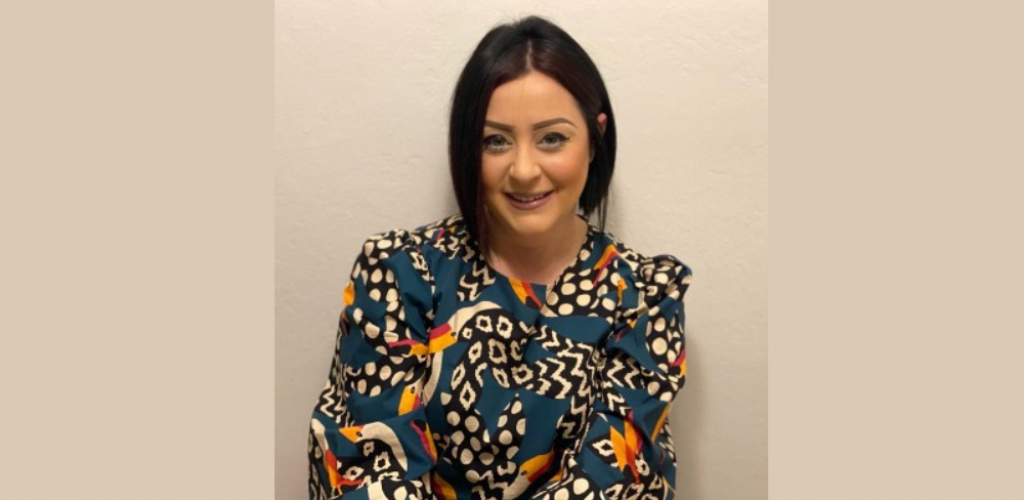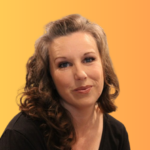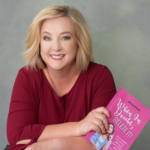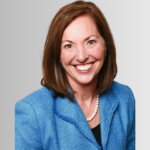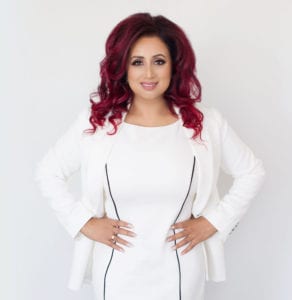Raj Girn: My guest today is Annie Raygoza, the director of client services at WebEnertia, a B2B digital agency headquartered in Silicon Valley.
Here is our conversation:
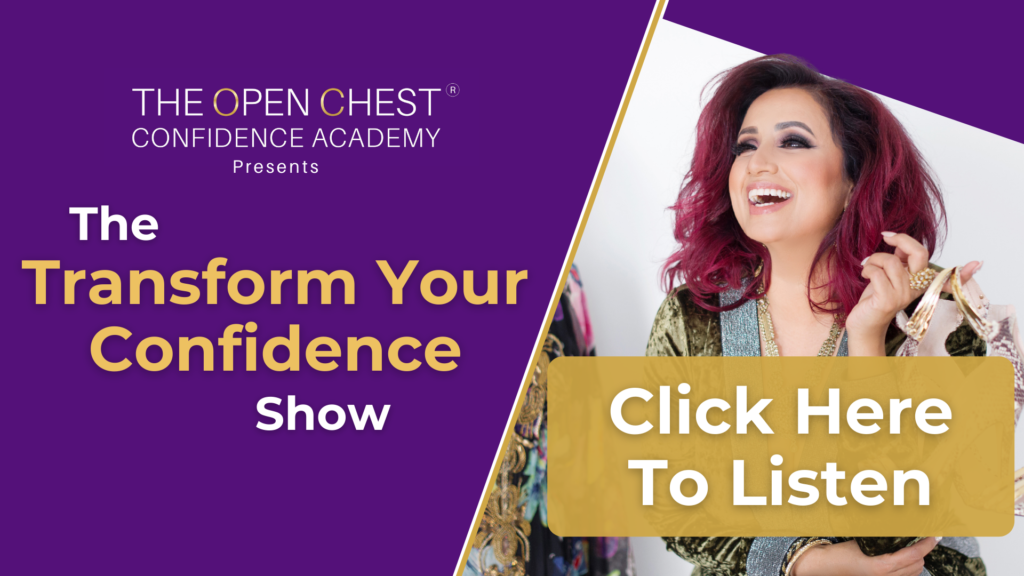
Raj Girn: Welcome to the show, lovely lady. We have been trying to do this for some time now and I’m so happy to finally have you on.
Annie Raygoza: Happy to be here and really excited to have a chat with you today.
Oh, my gosh. So let me just give a little bit of information for everybody. WebEnertia is a digital agency that specializes in marketing and advertising for B2B brands where Annie’s role has her dedicated to building client relationships where under her tenureship her team has garnered a 90 per cent client retention rate.
She is also the co-president of the American Advertising Federation’s Silicon Valley chapter. And her life’s mission is to create space for women in leadership positions in the tech sector and many others, as well as building community to support these efforts.
Annie, our theme today, as you heard off the top, is leaning into gender equality in business and building community and allyship. So we’re going to really break this down because I have you on the show. Are you ready?
Yeah, absolutely.
Brilliant. So here’s what I’d like to do with you, Annie, which is a bit different than I usually do when I structure my shows. And the reason is because I really felt that pop culture and social media have in some ways, actually quite indelible ways, really created biases around terms like gender equality, feminism, toxic masculinity, community and allyship.
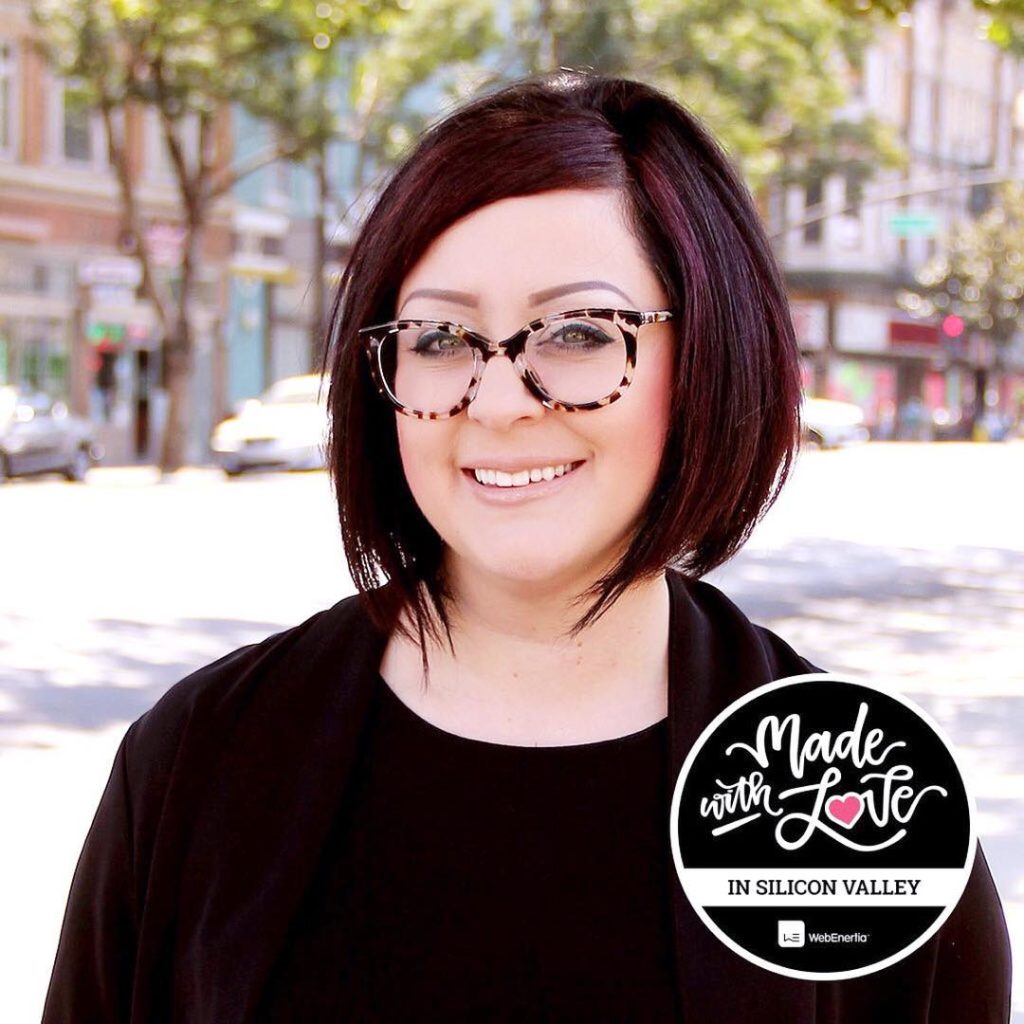
Credit: FB@webenertia
So what I’d like to do with you, if you’re game, is just to take a moment to identify for everyone watching, listening and reading this, what these terms mean from your perspective. And I want to do that before we really tackle the elephant in the room. So if you’re game, I’d like to just roll right into that. Let me know.
Sure. So I think that we’re definitely in a space right now where we’re fighting against social media and everything that’s out there. And I think, as women, we are challenged in a lot of ways, especially within this industry, of feeling confident in who we are and how we work with different people, especially, again, within the tech space, which is still predominately male dominant focused.
Right.
I think that there’s so many expectations out there about what we should be. But I think that also the flip side is that we’re in this really beautiful space where we have communities now through having these social media efforts and these areas where we can reach out to people that are similar to us, that we can build our own confidence and look at internship opportunities through there too. So I think it’s opening this really big door for women to build up that empowerment.
Absolutely. So, a lot of people do tend to get confused about a lot of these terms because it’s usually the loudest voice in the room that we think is the correct one. And when that comes to social media, it’s not always a correct one, as we know. So to preface our conversation a little bit before we dive in a little bit deeper around some of the things that we’re seeing is really showing up today and some of the things that perhaps we can do to push things along in the right direction a little bit better.
I want to kind of break down some of these terms from your experience. So I want to start by asking you what in your understanding is gender equality? What do people need to know about that term?
I think it’s really looking at people as humans. It’s really looking at people as individuals that have a voice, have an opinion, and excluding the gender. If we embody the human element to everything that we do together, we’re looking at things as a community and realizing strengths come in different individuals, different levels of needs and wants.
And so I think that’s the beauty of having this diversity, too, is that if we have the same type of group of people that think and do things the same, we’ll never really, truly grow as people or as organizations.
I totally agree with everything that you just said there. Annie, I want to ask you this, because a lot of people get confused around this. I’ve seen it a lot. And that is how is gender equality different than feminism?
I think that there’s that line and sometimes people can misinterpret them or there might be a stigma to some of those. Giving equality is looking at, again, each person as an individual and looking at their strengths and looking at who they are, what they represent.
I think feminism is really honing in on the the beauty of women’s needs and the things that might be difficulties or different strengths that women embody and really accepting, really trying to understand those things because that really helps us understand people better and how we work together, how we kind of share our lives with one another.
And at the end of the day, it’s bringing that education and understanding to a workplace really elevates culture and representation in the industry.
You’re talking about representation. Let’s add another layer to the mix, the obvious one, which is how do you see the adding of someone being of BIPOC representation fits into the mix when you have the female component, then you have the ethnic component? Talk to me a little bit about that from your experience.
I think that one of the things, too, is that being in Silicon Valley, we are such a diverse group here. And so we have the beauty of having that at our fingertips. And I think that when we talk to our clients and we look at how the growth of our companies are going, the direction that they’re going into is keeping all that in mind too.
And I think there’s a level of education that comes into how we represent work with all keeping that in mind too. So not only from a standpoint of our employees and the people we work with day-to-day and the people we surround ourselves with, but how do we represent everybody appropriately too?
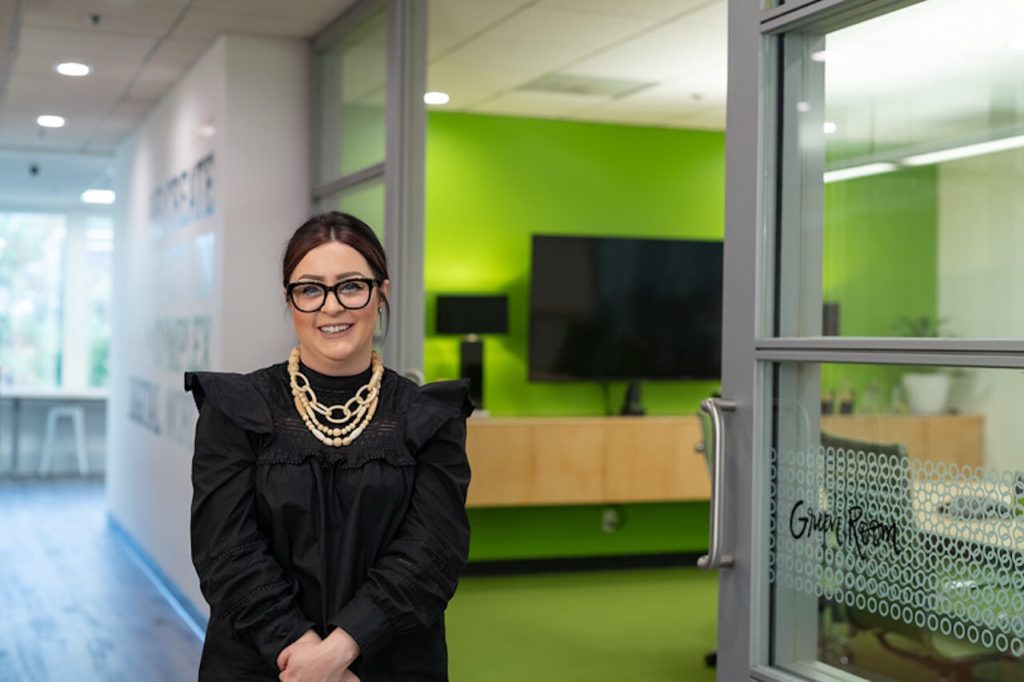
Absolutely. Why is equity for genders important? I mean, it sounds like it’s such a good question, but it really isn’t because, you know, time in memoriam, we’ve been discussing this. Again, why is equity for genders important?
Yeah, I think that it does feel like an obvious thing. Like why wouldn’t we offer this. But I think what’s starting to stand out is that people are understanding there are some things that haven’t been represented and there are areas that maybe we just culturally haven’t really thought about because it hasn’t impacted us personally.
But once we open our eyes and we take a step back into understanding, “Hey, now I get where you’re coming from and your perspective,” that can only educate us further in how we talk to people, how we work with one another. So creating some of that emotion behind what we do every day builds our relationships stronger.
So I think retention levels in the organization are high and a lot of that is attributed to the culture. And I think that’s a huge impact that we don’t just see you as an employee, as a number, we see you as a person and we accept all of you.
And we want to make sure that we hear and know you. And so it’s incredibly important.
Absolutely. I know a big part of your belief system is to create community around female opportunities, thought processes, perspectives, resources, etc.. So why do you feel women need to support women centric communities? That again seems like it’s obvious, but it isn’t.
Right. I think that over the years, I’ve had amazing male colleagues that I can talk to, I can share ideas with. But I think that also took time. And I think that there’s a confidence level that may be a little delayed for women, too. And I think that there’s some insecurities there. There’s the very well known imposter syndrome that is part of who for so many women.
The confidence gap.
Yes, absolutely. Exactly. And I think that sometimes even after so many years of being in the industry and working, you still want to talk to somebody that is similar to you that may be working or managing things the same way. And if I manage things on more of an emotional level to some degree, I like to talk to somebody who also does that and see how they create relationships, how they’ve overcome obstacles as well.
“Sometimes, even after so many years of being in the industry and working, you still want to talk to somebody that is similar to you that may be working or managing things the same way.” ~ Annie Raygoza
I don’t think it’s a hindrance to be a woman, to lead a certain way, to have that type of attitude towards things. But sometimes we do need to hear each other out too and keep us honest and feel good about that I can talk to this person and not feel like they’re judging me.
Right.
Yeah. So I think that’s one of the big reasons why.
Yeah, absolutely. It kind of lends a little bit also to this whole other term. I promise this is going to be maybe the second to last term. I’m going to throw at you the whole idea around toxic masculinity. This is a term that is really just existed in recent times. Your thoughts around this term? What do people need to understand about this?
I think that one of the things that’s really important is that is it a real thing? Absolutely. Is it something that everybody will encounter? Not necessarily. I think that if people have bad experiences, and it’s experience specifically around this, is to remember that if it doesn’t feel right, it doesn’t seem right, then it’s not the right opportunity or avenue for you to go and you do not have to persevere through it. So be honest to yourself. Make sure that you confidently can encounter these situations and approach them.
“I think that if people have bad experiences, and it’s experience specifically around this, is to remember that if it doesn’t feel right, it doesn’t seem right, then it’s not the right opportunity or avenue for you to go and you do not have to persevere through it. So be honest to yourself, make sure that you confidently can encounter these situations and approach them.” ~ Annie Raygoza
But one of the things that I lead with to the students I have — I teach at a local university as well — I tell them that a bad situation, a bad encounter is not how it’s supposed to be. It’s not going to drive your path forward. Learn from that opportunity and know that this is not how I want to pursue my career in the future.
Oh, my gosh. That’s very powerful. And it’s really stepping into your power when you are facing that kind of decision. So my last term, before we move into a different direction is the whole idea around allyship. So what about male allyship? What have you learned? I think that’s a better question.
What have you learned through your extensive experience in relationship building and sustaining in the corporate and entrepreneurial sectors? What do you feel is the key in accomplishing this allyship? And I want to ask you this question because it’s like times 10 in your world. You’ve already said it.
I mean the tech space is still very predominantly male. As a male . . . What’s that word I’m trying to come up with? A male locker room type of scenario. That’s what I want to say.
Right. And I think that it can be overwhelming for people. And I think once you find that allyship. So I think that’s, number one, a hard thing to do. It takes some time to kind of feel comfortable in yourself, in your organization. But allies come in all forms. And I have had some amazing allies that are men. And I think what comes with that is that there’s that respect that happens on both ways. They respect and an example I’ll give right now, at the organization I’m at, I am the only female leadership team member, but they empower me in the way that I come in with my own opinions and feelings.
And maybe it might seem like it’s against the grain to some degree, but they hear me out, be respected and on the flip side, I respect their opinions on things too, and I think that that’s an empowering thing to recognize the different strengths that we all hold and even our weaknesses that we can help each other out.
So do you feel that allyship really depends a lot on the hearing out piece? Because that’s what I’m hearing you say that the door is open, so to speak.
Yeah, I absolutely believe that. I think that when you find a community of people, and in this case if it’s men that you’re meeting and identifying with, I think part of that respect is hearing each other out. It doesn’t mean that you will agree on everything but acknowledging where you’re coming from, accepting things that maybe they were unaware of is so empowering.
And for me I’ve learned a lot of different skills too, that maybe if I were only surrounded by women, I may not have been able to get. So I think that diversity in that way, in creating that allyship is critical. But you do love that community. I mean, it doesn’t always work when you don’t have a great group either.
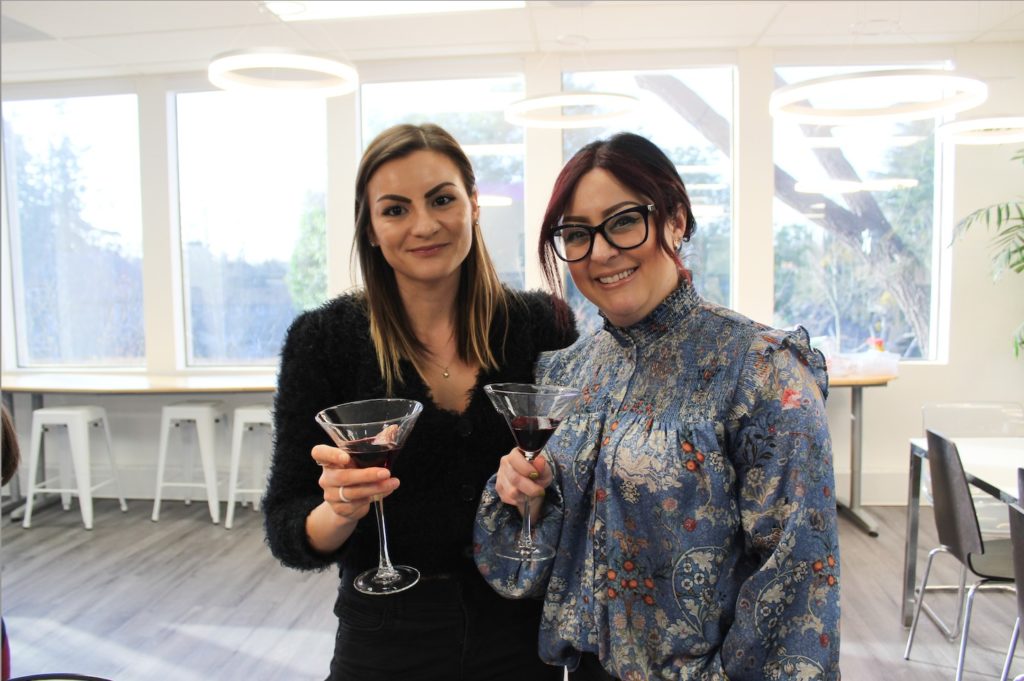
Right. Absolutely. But I love how you’ve really alluded to the fact that allyship really is a two way street. We talk about male allyship in the sense of being women. But there is this whole idea of almost . . . and I feel this a lot also in a lot of situations that I worked in as well.
How do we create an environment where the men don’t feel that a strong woman is coming in to try and be the man? But that she’s stepping in with her skill set. A lot of it comes from being female. And this is the thing that I’ve learned is that when I step into a room of men and I bring my female traits to the table, which is the nurturing and the two way process and all these things that you expect a mother to have, when you bring that to the table it’s actually quite interesting to see that men tend to be very receptive to that because they also all have mothers.
It’s a psychological thing as well. They all have mothers and most men respect their mothers. So when a woman comes to the table, not confusing them by trying to compete with them but stepping in with a different frame of familiarity, I think that goes a long way. I’d love your thoughts on that.
Yeah, I think that hit the nail on the head there. And I think, too, that there’s a level of confidence, too, with like, hey, this is my style and this is my approach. And yes, being okay with that speaks volumes to you don’t have to be the loudest person in the room. You can be the one that then opens up and says something that’s thoughtful.
And sometimes that will happen where I’m trying to soak everything in and then I’m trying to look at it from a different element. And I think that part of what I try to look at, too, is that the human side of it . . . it’s like at the end of day, this is a person we’re talking about, too, and this is some of the things that are going on. These are things that are contributing to these actions.
And so I think it can be eye opening, right? Sometimes we get so immersed in what’s wrong that we need to take a step back and say what’s actually happened with this person.
Right.
So, yeah, it’s just something that’s good for all of us to recognize.
Absolutely. And we all know this. Men and women lead in different ways. We know this. Can you recommend ways in which we can build bridges rather than walls regarding the tug? A war that resides between the nature of the sexes. Talk to me about that.
Yeah. And I think that sometimes we can be guilty of getting set in our ways. And this is the way I lead is the way you lead. But I think that by doing that is doing is a disservice. So there are things that my male colleagues may do that I’m like, that’s really working well with their team. I’d like to learn how I can implement that something that’s a little unfamiliar for me. But I want to learn how to do that, how to approach it.
So I think that’s kind of building a bridge and saying, “Hey, I recognize that you do this really well. How do you do this? I want to go about that.” It’s really nice, too, because it’s recognizing their skills and trying to learn from them too. And on the flip side, I had them ask me too, “Hey, I like how you’re doing that. I’d like to implement this. Can you give me tips?” And so we recognize when we get to that level of we’re not perfect and we’re not going to have it 100 per cent at any given time. But if we lean on one another, we can learn from each other and build our own skills, build our teams better, empower people in ways that we couldn’t do alone.
“We recognize when we get to that level of we’re not perfect and we’re not going to have it 100 per cent at any given time. But if we lean on one another, we can learn from each other and build our own skills, build our teams better, empower people in ways that we couldn’t do alone.” ~ Annie Raygoza
Absolutely. How have you understood the respect that you get from men and what is that attributed to? I feel that’s an important question because oftentimes women coming into this kind of an environment don’t know how to recognize it when it’s there. Talk to me about that.
Yeah, I think that respect for me personally comes when I know that I can have a conversation and open up and be vulnerable. And when I get to that level and I know that I can confidently do that with my male peers and especially in a leadership role that I feel like I’ve encountered a level of respect.
I am in a place where they respect me enough, I respect myself enough that I can go to them and say, “Hey, I’m opening up about this. Here’s my vulnerabilities out on the table. I need help or I need support.” And I feel like when you don’t have that, there’s something there. There’s some level of respect that is missing something, a big gap that’s happening. And that’s what you need to recognize, too. I can’t be my true whole self if I can’t do that and something’s blocking me from doing it.
Absolutely. As a woman who is often the only woman in the room, we’ve been talking about this so far, what advice can you give to other women that are now going to step into that room about navigating the waters in a male dominated industry like you’ve been in, that you’re in where she gets this respect that you’re talking about that oftentimes feels elusive because she hasn’t experienced it before and without having to give up her femininity?
I think that going into a room and feeling good about what you have to say and then I think that you have an opinion, it’s the confidence to say it. Don’t question yourself. Don’t make down yourself when you’re even bringing that up. Let people know this is my opinion. This is where I’m coming from. Have we thought about this?
I think a lot of people question it like I’m kind of unsure if this the right thing to say because nobody else is saying it. And I think that you should lean into that. I think that your opinion matters and you have something to say, you should say it. And I think that that’s where respect is earned, too. Sometimes we people just aren’t looking at those angles.
And if you have the opportunity to look at something from a different lens you should feel empowered to do that.
Absolutely. The other thing that I’d like to add to what you just said, though, is just this whole idea of women oftentimes, when they’re in these types of meetings, feel that their opinion isn’t going to be as well-received as their male counterpart.
And I always say to that, when I’m dealing with clients that are dealing with that specific scenario, I always say that the problem here with that statement is that you’re making it about them. What you need to do is you need to remember that this is about you. You’re in that room and you’re in that room for you. And if you don’t step into who? That us. Then that power quotient, you’re giving it away on a silver platter. So this is it. What are your thoughts on that?
I 100 per cent agree. I think that you can have brilliant ideas in your head and thoughts that nobody else is bringing up. I don’t think I want this. It could be a game changer. It could be something that changes the dynamic of things. But nobody will know your worth and how much you can offer if you don’t speak up. And so it doesn’t mean that everything you say is going to be the most amazing thing and it’s going to be recognized as, yes, we’re going to implement.
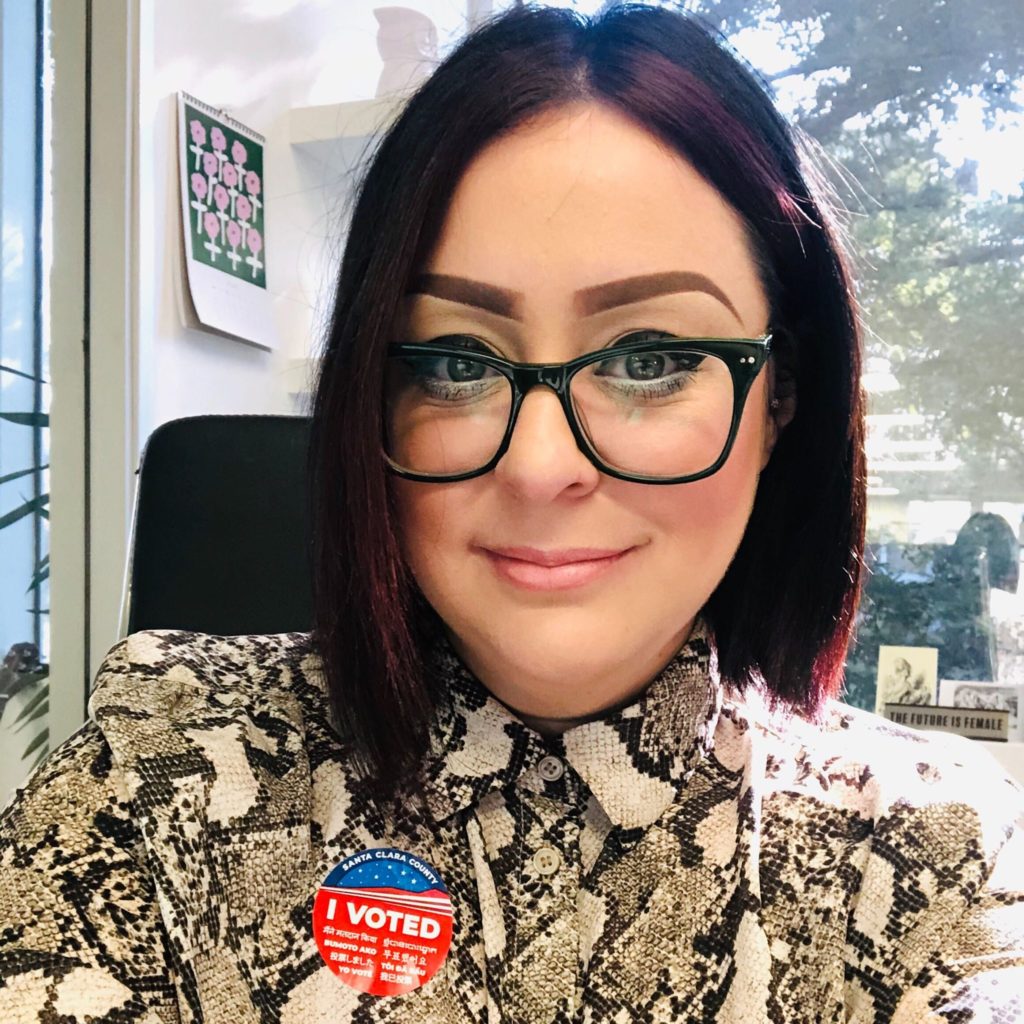
But people now know that you’re thinking through things. You’re being strategic in how you’re approaching it. You’re coming at it confidently and saying, I want my voice heard. And I think that if you don’t speak up, people will remember that. And so it’s best to always come in, voice yourself and make people know who you are and what you represent. And that is really important for growth.
Absolutely. I want to flip the quotient a little bit regarding this whole idea around allyship. And I want to ask you this, Annie. What do men need to lean into to support a more equitable environment at work for women? Because, I mean, our audience is filled with men and women. Let’s address that. Let’s help them address how to step into that and do it in a way where they’re being authentic but are also actually being supportive.
Right.
And not condescending, if you know what I mean.
Right. I think, for one, it’s looking at the culture that is currently in place and putting that all out in the open. I think hearing from people that are in the organization too, about that specifically is going to be important, but that takes you really being vulnerable and opening that door.
I think from there, that’s where you learn where are weak points, what are things that we can do to help with that equality level if it is missing and looking at services that are provided to you that are going to help various groups within the organization where they feel really protected not just from an employment standpoint, but from a human and culture standpoint that this organization really values me as a human being. So I think that that’s a huge thing, too.
And I think a lot of organizations, and ours as well, has been really on board with that. We know at the end of the day that this is your home away from home. People work so much during the day and they want to feel good about where they’re at and they want to feel like they’re in a safe place when home.
Absolutely. Your track record at your company has you leading a team that has a 90 per cent client retention rate. I mentioned it right off the top. I want to ask you this. What’s your secret? Is it the relationship piece? Is it the asking questions piece? What is it?
I really want to say that it is a really great team that I have. And they are the ones that are working with our clients day to day. My job is to really make sure that they have the skills needed, but they do a tremendous job.
I think one of the things that’s really important for us too is that, again, when I talk about the human element, I try to implement that into our client base too. At the end of the day you, they’re human beings that you’re working with that have pressures and vulnerabilities. And there are things that we need to understand, too, as to what is on the line for everybody.
The bigger picture.
Yeah. And I think when we do that then we’re seeing things a little bit differently too. And so having that level of respect, that transparency and of course, all the things that are expectations around the role themselves.
But one of the big things that we really hone in here at the agency is good communication. And I know that’s such a broad term, but it’s consistency. It’s making sure that we hear you. We’ve built that relationship and that trust. And then also we’re doing something about it.
That’s a big piece, right?
Yeah. That big circle of I hear you. Let’s do something. It’s a bigger picture thing for the company. How do we implement this so it’s ongoing? It’s never going to stop. It’s continuously evolving.
And I think that’s the key. Right?
Yes.
It’s the evolutionary process and listening and hearing and watching all of this happen. And where is it going and how is it benefiting or not? That whole evaluation process as it’s going on, as this evolutionary process is going on because, as you said right off the top, we really are in a time that is quite precedented in terms of there actually being a true opportunity for inclusivity on all levels. Do you want to maybe expand a little bit on that thought process for people, especially as it relates to the dynamic between men and women?
The level of inclusivity?
Yeah, like just how we are truly seeing those changes happen, you know, social media, the hashtags and all the things that we know that have happened over the course of the last couple of years.
Yeah, I think that it’s important internally of how we have to recognize what’s happening outside of our bubble, outside of our small world. And how is it affecting not just our people, but our clients, the business, things like that too. So we need to be always so aware. And I think that’s something that can do people a disservice. When you are focusing on the day to day, you’re not seeing the big picture, you’re not seeing how it may impact your clients, how it may impact your team, and always being aware of that inclusivity and how we represent it in our work, how we represent it in our people, how we talk to people. We have forms of education that we do in training here within our organization as well, to make sure that everybody is always aware of that too. We are open to conversations all the time and that’s part of who we are as our culture as well, that we have this open door policy of, be vulnerable, be open, come talk to us, we want to hear you out if something is making you uncomfortable or if there’s ideas on change.
“When you are focusing on the day to day, you’re not seeing the big picture, you’re not seeing how it may impact your clients, how it may impact your team, and always being aware of that inclusivity and how we represent it in our work, how we represent it in our people, how we talk to people.” ~ Annie Raygoza
Absolutely. And so what do you feel at your company that you see remarkable things happening around the corporate culture piece that you feel really lends to the overall success of the business? Because there’s still so many corporations that don’t understand the power of setting a corporate culture that includes everyone.
Yeah and that’s so important. You know, we have a really strong retention rate internally here as well, and that speaks volumes to our culture. I think that there’s so much competition out there, especially in this space. But what keeps people here, it’s one that they’re passionate about.
The work we do, the quality of work we do, and really importantly is the culture. And so for us it’s not innate. I always lead with this when we’re interviewing people because I want them to know it because it’s the reason why I’m here. I’ve been here for five years and I don’t plan on going anywhere.
I love that.
Yeah, it really is that the people the culture was built on, it’s not just core values that we splash on wall and say, “Here you go, we have some values.” It’s that we evaluate people from when we’re hiring to how we evaluate them on annual levels as well. How are you representing this culture in addition to your work of course as well? But it is a key part of who we are and we hold people accountable to it.
We hold ourselves accountable to it, the leadership team as well. And I think that in also hearing people out, we have tons of different avenues for people voicing opinions change, things like that. So it really lends to a very open environment that I love. And definitely our team can speak to that and we have tremendous reviews on Glassdoor. So it’s worked really well for us.
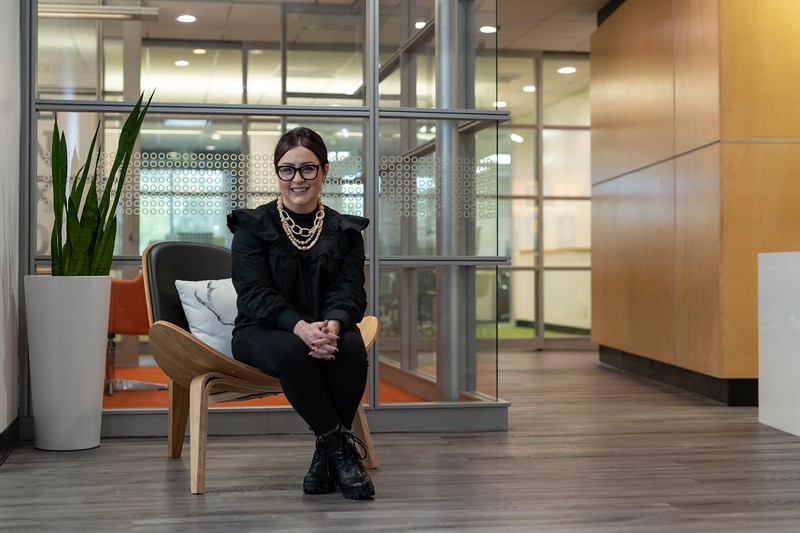
Absolutely it has. And it will work for any organization that truly takes it seriously because it really is the ground zero of relationship building and sustaining and growing. It really is. I’m on your page there and oftentimes I got to ask you this question.
Women feel that when you get to a certain level in any kind of company, you tend to see fewer and fewer women. And that when women come into the space, there’s always this fear that perhaps there’s not going to be that much room for women and I’ve got to do this, that and the other to ensure that I’m the only woman there. So what they end up doing is defeating the whole purpose of allowing each other up the food chain. Talk to me on that.
Yeah, that’s an interesting one. I think that as women, too, you’re absolutely right. We need to break these internal boundaries to basically hold ourselves accountable. We need to look at the strengths within one another and learn from that. Somebody else might be amazing at the skills that I’m weaker in. It doesn’t necessarily mean that this person is better than me.
It means that we’re different and our strengths and weaknesses lie in different areas. And if we can collaborate and we can learn from one another, that can only strengthen both of us. So I think that really honing in on that is important. It’s essential, and I think sometimes it is hard to break those boundaries. But again, leaning into that vulnerability aspect and opening that door a little bit to say, “Hey, I really like what you did there. I want to learn from it.” That’s such an easy way to start to learn and start to create that community internally.
And, as we’ve been talking, community and two way streets and open doors have all been a huge part of what I’m hearing is your value system. So I want to ask you this. What have you learned about relationships that you feel everyone fundamentally misses the mark on?
The bottom line? I think that relationships, just like in any relationship even outside of work, there’s going to be those ebbs and flows. And so is knowing that things aren’t going to be perfect in any relationship, you might have some bad days, you may have some days where there’s such a disconnect and you’re frustrated but know that, like any relationship that you hold, that what do you do to make it better? You talk about it, you discuss it, you evaluate. You take a take a step back, and then you look at it from a different viewpoint.
And I think that if you can maturely do that, which is not always easy sometimes in the moment. But when you can do that, then you can realize, okay, I’ve learned from this what happened and this is how I’m going to proceed. So one of the things that I always try to tell people, especially young in their career, too, is when it comes to relationships, it seems like such a obvious thing, but never ever burn a bridge because it is such a tight knit group, especially if you’re within a certain industry that somebody knows somebody. And even if that relationship is failing and it’s not the right fit, know that you always leave with grace. You always have that level of respect. And if your paths cross later on, people remember that. So I think that that’s another big one, I would say, when it comes to relationships.
“One of the things that I always try to tell people, especially young in their career, too, is when it comes to relationships, never ever burn a bridge because it is such a tight knit group, especially if you’re within a certain industry that somebody knows somebody. And even if that relationship is failing and it’s not the right fit, know that you always leave with grace. You always have that level of respect. And if your paths cross later on, people remember that.” ~ Annie Raygoza
Yes, I cannot fault anything that you’re saying. Everything that you’re saying just makes absolute sense to me. And the other thing is, guys, is that a lot of what you’re talking about is really housed in what are the actions and what are the thought processes around how we can navigate this.
And simplifying it by removing all of the the things that people say about it, the things that people have experienced and maybe bring you to the table in that relationship dance that we have to do in all aspects of our life. So I want to look back to the theme of the show, leaning into gender equality in business and building community and allyship. Is there anything you feel that we didn’t touch upon that you’d really like to share as we get ready to close off Annie?
I think we covered a lot. I would just say that I encourage everybody to, if you’re on the fence of reaching out to somebody or creating that relationship, I’d say go for it. I really encourage people to send them a note, ask them if they want to get a drink, a cup of coffee, pick their brain.
Everybody start somewhere, even if you’ve been in your career for many, many years. But mentorship is such an integral part of growth. And I think taking that plunge to do that is it’s never going to hurt you. It’s going to only help you.
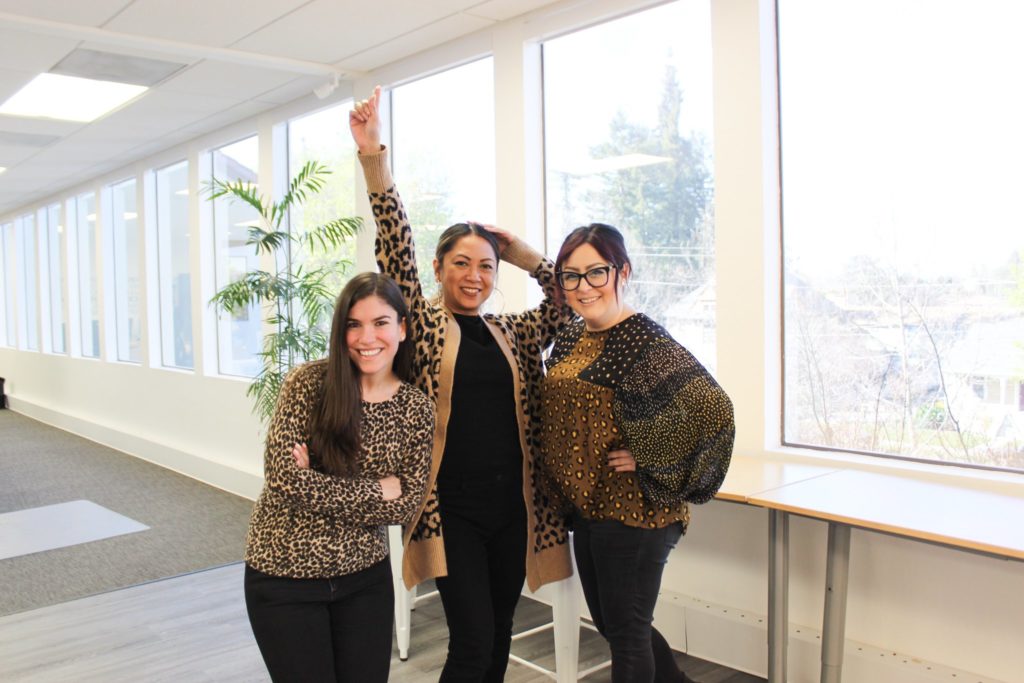
Absolutely. You know, even till today, I have mentors that I work with. I have for many decades of my life in all aspects of my life. And I can’t imagine if I didn’t allow myself to have enough confidence in my vulnerability, would I have gotten to where I have in all aspects of life. How do you feel about that? I mean, I kind of feel that you agree with that, but I want you to tell me.
It was in the most unexpected places, things that I never thought that this person would have so much of an impact on me, especially early on in my career, that I still remember them today and I still reach out and thank them for. I’m teaching this now to students. I’m teaching this to my team.
And it was those moments that you gave me, that time that you spend on me to educate me on these things, that you went such a long way. And I want you to know that. And so I think people don’t recognize always how those moments can impact people long term. So it’s always good to give them a kudos when you can.
Absolutely. What what are your final words that you want to leave everyone with, especially those that maybe aren’t bought into the whole idea of cultivating relationships in order to have more business success?
I think break those barriers. I think go with your confidence, be vulnerable. I think that’s going to really empower you and strengthen who you are as a person. And don’t be scared to be who you are. Don’t define yourself based on what everybody thinks you should be. If you have a special and unique factor to who you are, how you lead, who you want to be, then lead with that. That’s important.
“Break those barriers. Go with your confidence, be vulnerable. That’s going to really empower you and strengthen who you are as a person. And don’t be scared to be who you are. Don’t define yourself based on what everybody thinks you should be. If you have a special and unique factor to who you are, how you lead, who you want to be, then lead with that. That’s important.” ~ Annie Raygoza
Absolutely. And this all comes down to this whole notion of knowing yourself like know who you are. And I feel the who are you is the fundamental ground zero of anyone’s journey. And if we figured that out early on enough, or if we’re in a place in our lives or we’re entering a new chapter that we can kind of sit with, that get the tools and the resources and the mentorship and whatever it needs to sit with who we are in that present moment, I think that the decisions that we make for our future will align far better to the purpose of why we’re here as as individuals and as a collective, as humans, as the community that you’ve been talking about, that we really should be stepping into building and nurturing and honoring.
Absolutely. Couldn’t agree more. And I think that sometimes well, not even sometimes, we’re always going to evolve. And I think leaning into that, too, is okay. And we’re not going to stay the same forever. And so there’s opportunities there as well.
Absolutely. Anyone out there who wants to hang out with you online on social media or any other way, the metaverse as we’re now talking about that community, which is a whole other show, right. Where can we send them?
You can definitely find me on LinkedIn. Annie Raygoza Director Client Services at Web Inertia. I’d be happy to connect with anybody that’s interested in having a conversation, just talking through anything that we spoke about or anything about webinars as well.
I love that. I loved our conversation. Annie. Thank you so much for bringing your wealth of wisdom and insights to the show and for our community to really be able to benefit from. Thank you for that.
Thank you. I really appreciate the time.
Absolutely.
Guys, gender inequality in the workforce has been and remains in the most part to be alive and kicking in some form or other, albeit sometimes it’s indirect because of the changes that we’re seeing and that we’ve been talking about today with Annie.
This is really making it a lot harder to recognize that maybe you may be an active participant or a victim of some sort of a toxic culture at work that you aren’t seeing happen, because it seems to be simmering underneath the overarching culture of what’s happening in your company. My advice for you in that case would be to be aware this is what Annie’s been talking about the whole time.
Be aware of your relationships dynamic and also of the environment that you’re in and be aware of who you are as well as part of that. Because oftentimes we like to blame, but we don’t realize that we’re active participants in what’s what, that marriage that’s happening between us and other people if it doesn’t, you know.
The other thing I wanted to close off with is that if the environment that you’re in doesn’t have an inclusivity mandate, then perhaps it’s something that you want to motion to all of your higher ups. Or if you are a higher up, get it done. Get it done, because having more people sitting at the table is going to change the way that your company is going to grow into the reality of the society that we live in and that we are going to keep evolving.
Another theme that we kept talking about and it was going on and on about this. Annie, the evolution is inevitable. So we have to always step into acknowledging and keeping that in our conscious space and not forgetting that these things, really small things, can make massive changes.
Guys, I really hope that you enjoyed this show and that you got some real value from everything that we’ve been talking about today. And if you feel there’s anyone out there that could really benefit from today’s learnings, please share this episode with them. I also hope that you’ll subscribe to my YouTube channel and hit the notification button at the Open Chest Confidence Academy so that you never miss an episode because we always drop them every Wednesday. You can also download the ‘Transform Your Confidence Show’ on podcast platforms and give it a five star rating if you feel it’s valuable in terms of assisting your journey to empower your confidence with actionable insights. You can also read the podcast as a blog at theopenchestconfidenceacademy.com/media/podcast and I’ll see you next week for another invaluable episode packed with insights and learnings to help you empower your work, your life, and your spirit. Take care of yourself, guys.
To contact Annie Raygoza: LinkedIn


